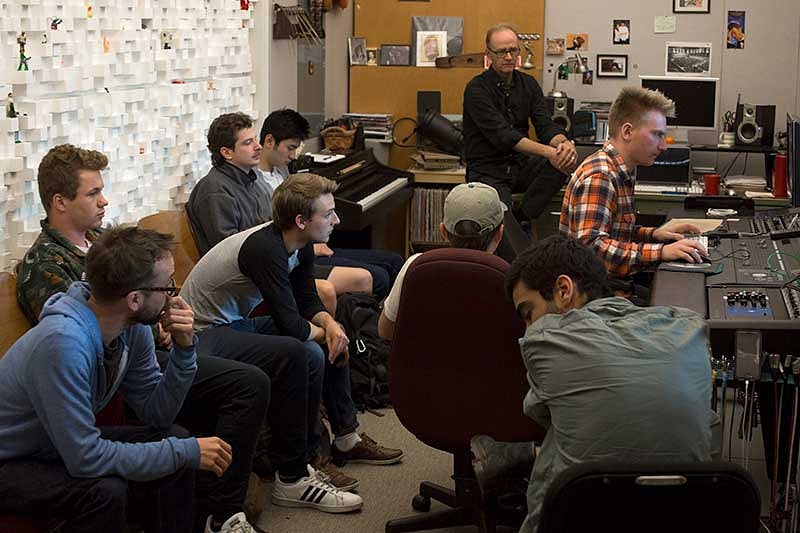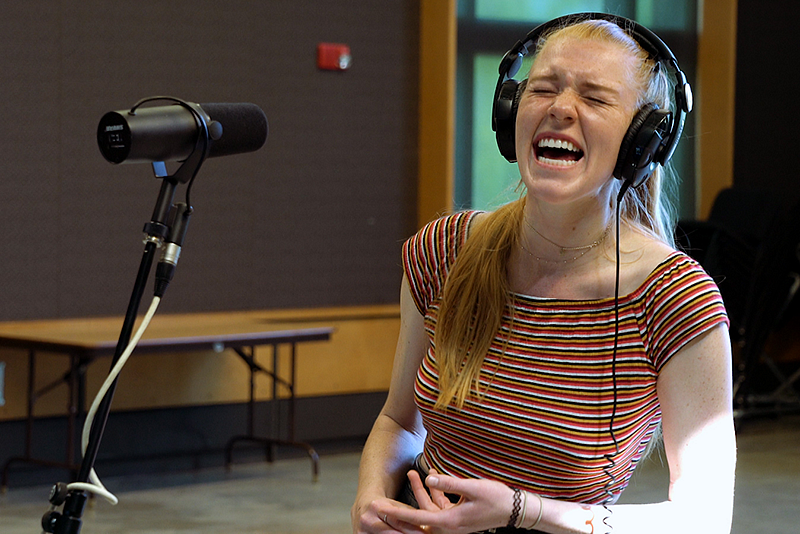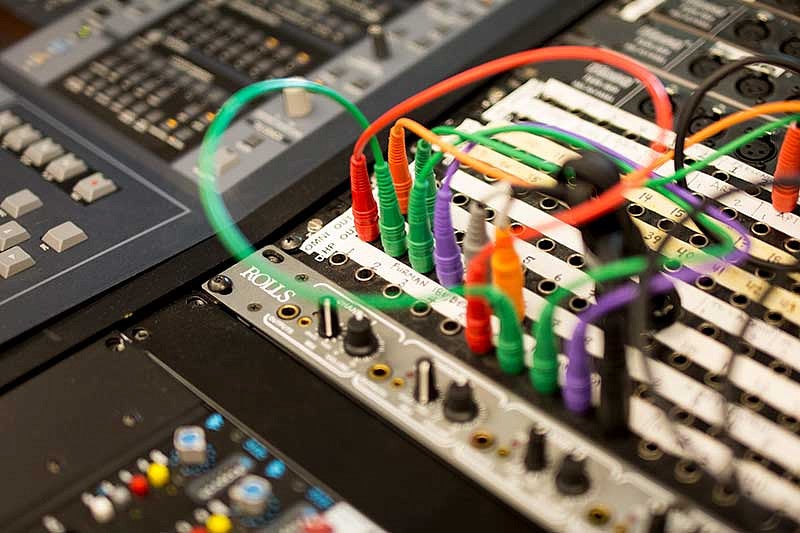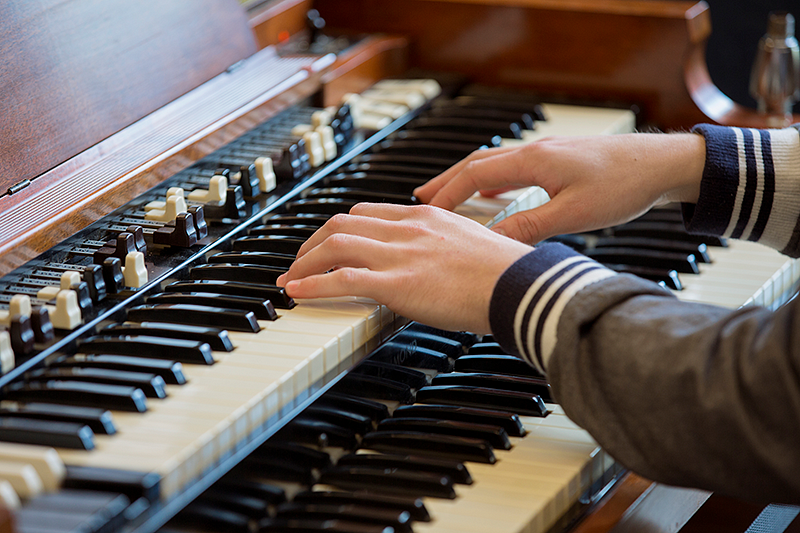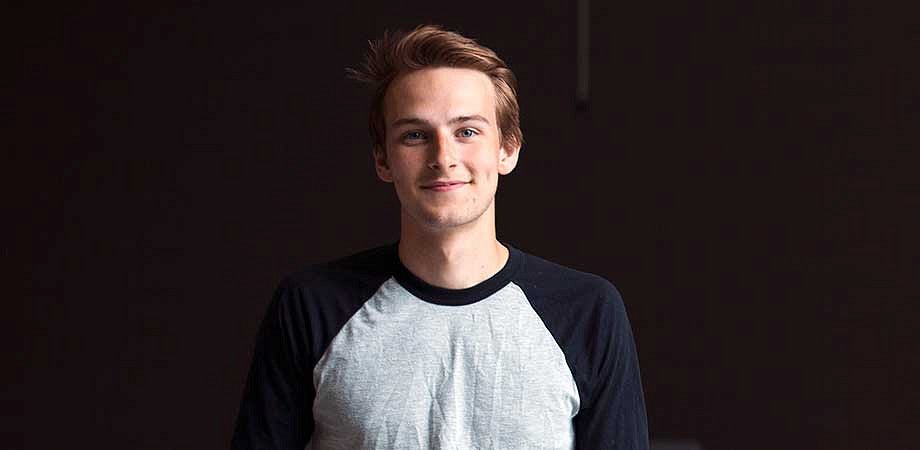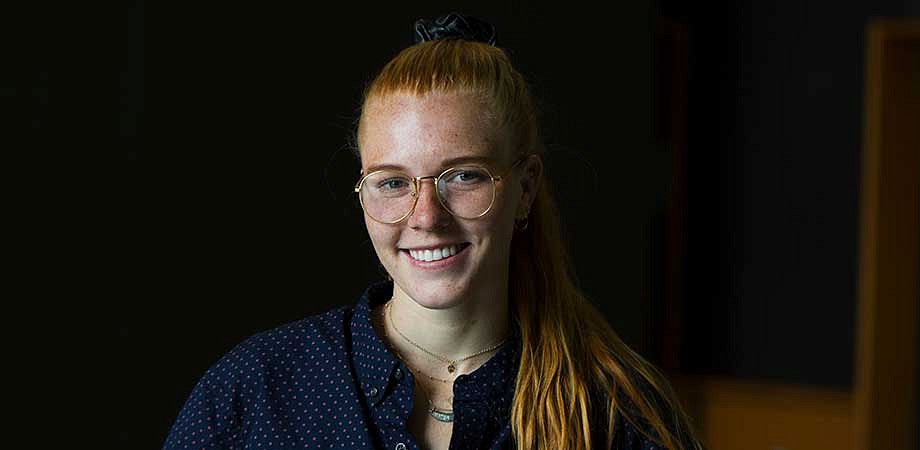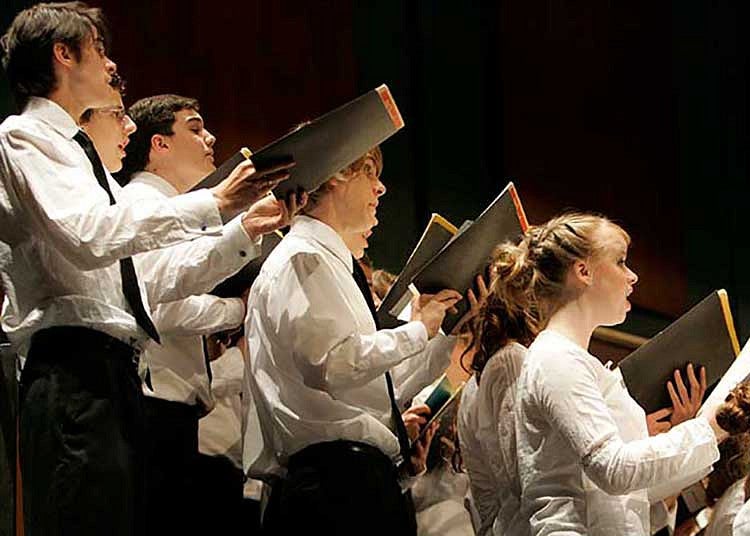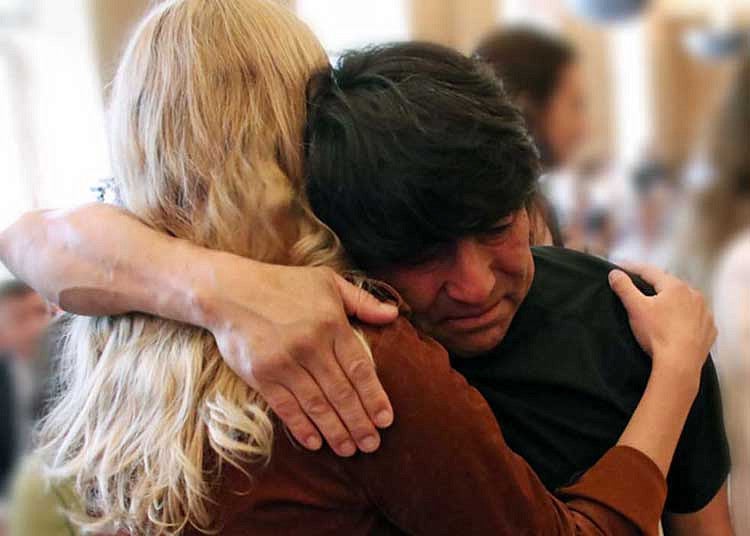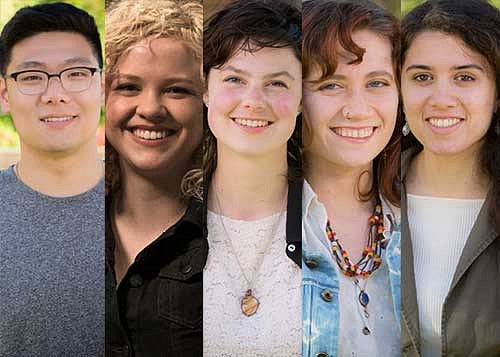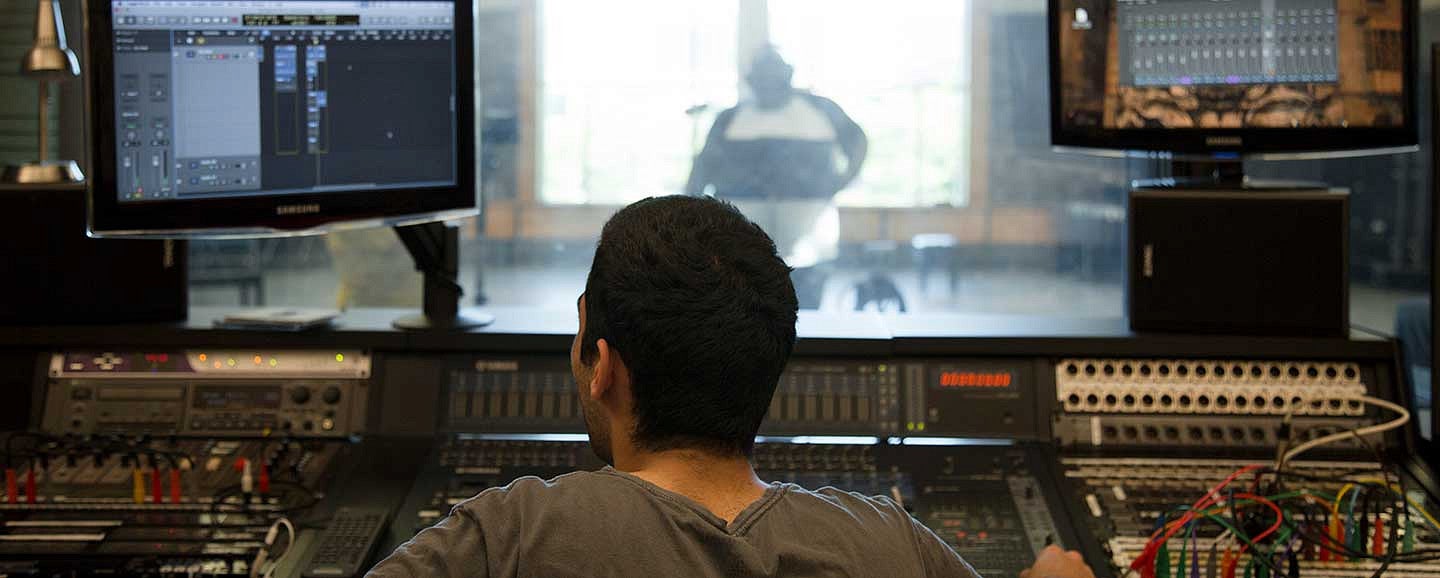
School of Funk
STORY BY ED DORSCH, BA '94, MA '99
VIDEO AND PHOTOS BY DUSTY WHITAKER
When is a classroom not a classroom? When it’s a world-class sound studio. At the UO’s School of Music and Dance, undergrads learn music production by actually producing music.
Here, you tell the teacher what you want on the final exam. Actually, it’s a final song. Every Audio Recording Techniques class chooses its own “challenge song” to build from the ground up. Last year it was Radiohead’s “House of Cards.” This year, it’s the funk classic, “I Want to Take You Higher,” by Sly and the Family Stone.
The students start with a sonic excavation of the original recording. In this musical chop shop, they tear the song apart and figure out how it was created. Then they produce their own version from scratch.
Students in the class sing and play the instruments for some of the parts, and they recruit friends and community musicians to play others. This year, they enlisted a student’s dad to play the harmonica solo. Track by track, they construct a recording as close to the original as possible.
That’s 10 weeks of hard work, fun, creativity, and mistakes distilled into five minutes and 20 seconds of nitty-gritty funk that sounds a lot like 1969. Sure, the students learn demanding technical skills. But that’s the easy part. The life-transforming lessons—teamwork, resilience, analytical thinking, problem solving—come from joining a crew with a bold objective and a hard deadline.
They have to plan all the steps carefully, because making a record is kind of like building a house. Things have to be done in order, and a bad foundation can ruin everything else. Need to redo a recording session? Then other pieces of the production puzzle get moved around. And then, well, tick tock. Better pick up the tempo and lay down those tracks—double time. When the end of the quarter comes, 10 weeks isn’t what it used to be. Boom shaka-laka-laka.
Sound Advice
Want to role play? Students in MUS 482 try out mixing and recording like the pros, with professional tools in a world-class studio. Through trial and error, collaboration, and a healthy dose of creative conflict, they produce the annual “challenge song” and build their chops with other projects, like symphony recordings.
Of course, all this work and play happens under expert supervision. Instructor Lance Miller offers consultation based on decades of practical experience. Ultimately, though, the decisions—and the final results—are up to the students.
From microphone placement to final output, and every detail in between, they learn how hundreds of little decisions all contribute to the final product. Should we use the SM-7 or the Fathead microphone? Maybe both? And where should we put them? How much reverb?
Tweak the EQ. Overdrive the tube amp. Tell the harmonica player to “eat the mic.” Sweeten that track in post (or maybe add a little funky dirt and take it higher). There are countless ways to experiment with the art and science of shaping sound, and you’re never really done. But spring quarter only lasts so long.
Catching Lightning in a Bottle
Moments of creation: In the studio, they can happen any time. Or not. That’s why you’re always ready to capture the groove when it hits. If it doesn’t, then you have to help it along. Make sure the performance you’re recording is spontaneous, but perfect. But not too perfect. Because a recording session has to balance precision with soul, and technology with psychology.
In this audio laboratory, students learn how to run a tight ship while loosening up a little. They coax heartfelt performances out of self-conscious classmates (Hint: Tell them you’re not recording when you really are). And they try on all kinds of hats: engineer, producer, artist, coach, cheerleader, therapist, and more.
MUS 482's Final Recording
“I Want to Take You Higher”
They quickly learn—because they have to—how to improvise, overcome stumbling blocks, and assert their opinions while listening to others. Sometimes, they find out, you should go with your gut instincts. And sometimes you should probably trust someone else’s.
It’s all about delivering the best final version possible—on time. But it’s really all about finding your part in the group, and always taking the risks to play it a little better.
Minor Key
A new minor in audio production will be offered by the School of Music and Dance starting this fall. The program will give students recording studio experience, as well as insight into the history of the recording process and the techniques of accomplished producers.
We hate to brag, but our timing is perfect. The school has excellent production facilities and an outstanding faculty with plenty of experience and enthusiasm. Since we offered our first studio production course, the response from students has been overwhelming.
This new minor will offer expertise and insight into the business of creating music—an industry that is thriving. And changing at a faster tempo every year (sometimes every month). Available to all majors, it will provide a rigorous academic and artistic curriculum, as well as technical skills and practical experience.
